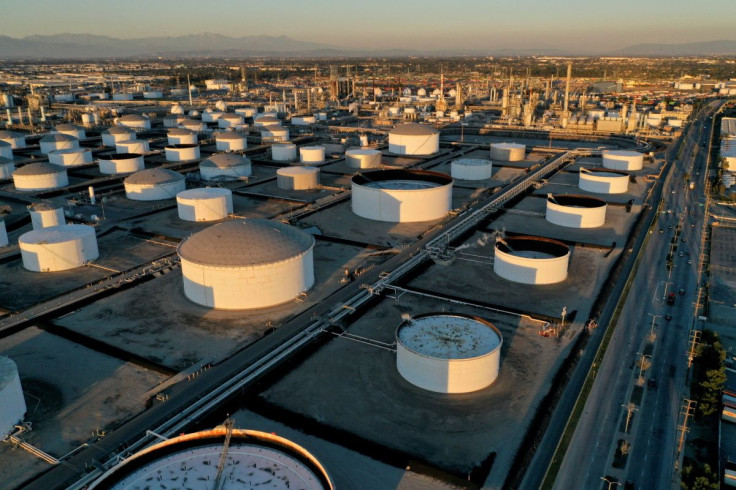Oil Above $120 A Barrel As EU Meets On Russia Sanctions

Oil prices climbed above $120 a barrel on Monday, hitting their highest in more than two months as traders priced in expectations that the European Union will eventually reach an agreement to ban Russian oil imports.
The Brent crude futures contract for July, which will expire on Tuesday, was up $1.35, or 1.1%, at $120.78 a barrel by 1616 GMT. The August Brent contract, which is more active, rose $1.27, or 1.1%, to $116.81 a barrel.
U.S. West Texas Intermediate (WTI) crude futures jumped $1.11, or 1%, to $116.18 a barrel, extending solid gains made last week.
The EU is meeting on Monday and Tuesday to discuss a sixth package of sanctions against Russia for its invasion of Ukraine, which Moscow calls a "special military operation".
"Europe has been haggling about this for the better part of a month, but increasingly the market is pricing (additional sanctions) in as a risk," said Daniel Ghali, senior commodity strategist at TD Securities in Toronto.
EU countries failed to agree on a Russian oil import ban despite last-minute haggling before the summit got under way in Brussels on Monday. But leaders of the 27 EU countries will agree in principle to an oil embargo, a draft of their summit conclusions showed, while leaving the practical details and hard decisions until later.
"It's still quite difficult for the European group to reduce its energy dependency on Russia in the near term," said Leona Liu, analyst at Singapore-based DailyFX.
Any further ban on Russian oil would tighten a crude market already strained for supply amid rising demand for gasoline, diesel and jet fuel ahead of the peak summer demand season in the United States and Europe.
Underscoring market tightness, the Organization of the Petroleum Exporting Countries and allies including Russia, a group dubbed OPEC+, are set to rebuff Western calls to speed up increases in output when they meet on Thursday.
They will stick to existing plans to raise their July output target by 432,000 barrels per day, six OPEC+ sources told Reuters.
© Copyright Thomson Reuters 2024. All rights reserved.







